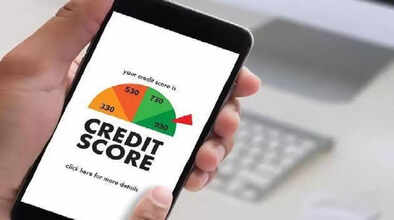These 5 misconceptions often remain in people's minds regarding credit score, do not fall for these hearsays.

Myths about Credit Score: There are many misconceptions in the minds of many people regarding credit score. Therefore, do not get influenced by what people say, know the truth, and remove baseless things from your mind.
Myths about Credit Score: If you go to take a loan, your credit score is checked first. A credit score is also called a CIBIL score. Through credit score, the bank or loan-giving institution checks your credibility. Credit score ranges between 300 to 900. The better the credit score, the easier the loan is available and with better interest rates. However, there are many misconceptions in the minds of many people regarding credit score. Therefore, do not get influenced by what people say, know the truth, and remove the misconceptions.
1. Loan is not available if credit score is low
Many people believe that if their credit score is low then they will not get a loan from the bank. But this is not completely true. A low credit score definitely makes a difference to your credibility. But while giving loan, banks also consider other things like your income along with CIBIL score. If you have a low credit rating, you can still provide bank statements with proof of increases in your salary, annual bonus or other additional income sources to prove that you are able to repay the loan. Even if there is nothing like this, there are many banks and loan giving institutions which give loans even with low Cibil Score. But in such cases they charge higher interest rates. Apart from this, if your score is low and you are not able to get the loan at the right interest rate, then you can also choose the option of joint loan.
2. Use less credit cards for a good credit score.
Many people say that to maintain a good credit score, one should use credit cards less. In fact, to maintain the credit utilization ratio, it is advisable to spend up to 30 percent of the credit card limit, so that the bank does not get the message that you are overly dependent on the credit card. But if you spend more than 30 percent at the time of need and repay it on time, it will not affect your credit score.
3. CIBIL score reduces by repeatedly checking credit score.
There is a belief among people that if you check your credit score again and again, it reduces. But in reality it is nothing like that. This does not affect your credit report. If you check your credit score from time to time, the advantage is that you remain aware of your score and can immediately take steps to improve it if the score falls.
4. Credit score also falls due to bounced cheque.
Many people believe that credit score also falls due to bounced cheque. But check bounce does not directly affect the CIBIL score. CIBIL score largely depends on your ability to repay the loan on time. If your check bounces, but you are paying your loan installments on time, your CIBIL score will not reduce.
5. Having too many credit cards can spoil your credit score.
Having more than one credit card does not reduce your credit score. Rather, many people keep more than one card to increase their credit limit. If you use more than one card and make repayments on time, there is no impact on your credit score. CIBIL score falls if repayment is not made on time.

